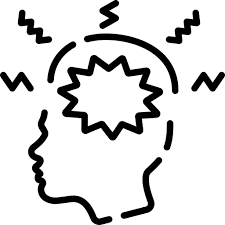A nervous breakdown at work is a state of mental or emotional collapse caused by stress. It can be accompanied by physical symptoms, such as chest pain, rapid heartbeat, and dizziness. In this article, we will try to understand what is a nervous breakdown at work, how common it is, the types of nervous breakdowns, and various signs that indicate you are having a breakdown. We will also discuss the causes and risk factors associated with it and how you can recover from it.
Understanding Nervous Breakdown At Work

A nervous breakdown is a term used to describe a period of intense mental or emotional stress. It can be accompanied by physical symptoms, such as chest pain, rapid heartbeat, and dizziness. The term is not medical, but people often use it to describe a difficult or stressful situation.
How Common Is It
There is no definitive answer to this question as the condition is not formally recognized by mental health professionals. However, it is thought to be relatively common, especially in people who work in high-stress jobs.
Nervous Breakdown Vs. Burnout
It is important to distinguish between a nervous breakdown and burnout.
- Burnout is a state of chronic stress that can lead to physical and mental exhaustion.
- A nervous breakdown, on the other hand, is a more acute reaction to stress.
Types of Nervous Breakdown At Work
There are four main types of a nervous breakdown:
- Mental: This type is characterized by a loss of touch with reality.
- Emotional: This type is characterized by overwhelming emotions, such as sadness, anxiety, or anger.
- Physical: This type is characterized by physical symptoms, such as chest pain or dizziness.
- Behavioral: This type is characterized by changes in behavior, such as withdrawing from social activities or engaging in risky behavior.
Signs of Nervous Breakdown At Work
The signs and symptoms of a nervous breakdown vary from person to person. They may include:
- struggle to concentrate
- have difficulty sleeping
- feel anxious or depressed
- feel overwhelmed by stress
- unable to concentrate or make decisions
- sleep too much or not being able to sleep
- feel like you can’t cope with your workload
- experience physical symptoms, such as headaches, chest pain, and stomach problems.
Causes And Risk Factors
Several factors can increase your risk of having a nervous breakdown at work:
- Working in a high-stress job
- Experiencing a traumatic event
- Having a history of mental illness
- Having little or no support at work
- family history of mental illness such as anxiety
- substance abuse, such as alcohol or drug abuse
- poor coping skills, such as not being able to express emotions
Recovering From Nervous Breakdown At Work

If you think you are having a nervous breakdown, it is important to seek professional help. A mental health professional can diagnose and treat the underlying causes of your symptoms.
Available Treatment Options
Treatment for a nervous breakdown often includes medication and psychotherapy.
Medication: Antidepressants, anti-anxiety medications, and antipsychotic medications can be used to treat the underlying causes of your symptoms.
Psychotherapy: Cognitive behavioral therapy (CBT) and interpersonal therapy (IPT) are two types of psychotherapy that can be used to treat a nervous breakdown.
- CBT focuses on changing the negative thoughts and behaviors that contribute to your symptoms.
- IPT focuses on improving your relationships and communication skills.
Hospitalization: In some cases, you may need to be hospitalized for a short period. This is often the case if you are having difficulty eating or sleeping or experiencing suicidal thoughts.
Self-help Measures
In addition to professional help, several self-help measures can help cope with a nervous breakdown:
- Get plenty of rest: Make sure to get enough sleep and avoid working long hours.
- Eat a healthy diet: Eating nutritious foods can help improve your mood and energy levels.
- Exercise regularly: Exercise can help reduce stress and improve your overall health.
- Avoid alcohol and drugs: Substance abuse can worsen the symptoms of a nervous breakdown.
- Find a support group: Talking to others who are experiencing similar problems can be helpful.
Planning To Resume Work After Breakdown

If you have had a nervous breakdown, it is important to take things slowly when you return to work. You may need to reduce your workload or hours at first. It is also important to have a support system in places, such as a trusted friend or family member, to help you through this time.
The Role of HR
HR plays a vital role in supporting employees who are returning to work after a nervous breakdown. HR can provide support and guidance on issues such as:
- sick leave,
- work accommodations, and
- return-to-work programs.
Workable Strategies
There are several strategies that HR can use to support employees who are returning to work after a nervous breakdown. These include:
- Be understanding and supportive: Employees may be feeling anxious or stressed about returning to work. It is important to be understanding and supportive.
- Encourage open communication: Employees should feel comfortable communicating with their supervisors about their needs and concerns.
- Develop a return-to-work plan: You can do it in consultation with the employee and their treating health professional. The plan should identify the employee’s goals for returning to work and how will they achieve them.
- Identify workplace accommodations: These may include flexible work arrangements, such as reduced hours or working from home. As employees may need some flexibility in their work schedules or duties. This can help reduce stress and promote recovery.
- Provide support and resources: This may include Employee Assistance Programs (EAPs), which offer confidential counseling and support services.
- Monitor progress: Regular check-ins with employees and their supervisors can help to monitor progress and identify any concerns.
Preventing Nervous Breakdown At Work

There are several steps that HR can take to prevent nervous breakdowns at work. These include:
- Identify and address stressors: You can do it through surveys, focus groups, or individual interviews.
- Develop and implement stress-reduction programs: These may include yoga classes, relaxation training, or massage therapy.
- Encourage employees to use their vacation time: This can help employees to relax and recharge.
- Promote a healthy work-life balance: Ensure flexible work arrangements, such as telecommuting or job sharing.
How Mantra Care EAP Can Help You

Mantra Care EAP can help employees who are struggling with stress and mental health problems. We offer confidential counseling and support services. We can also guide workplace accommodations and return-to-work programs. For more information please, visit our website.
Conclusion
Nervous breakdowns can be debilitating, but there are ways to prevent and recover from them. If you think you are having a nervous breakdown, it is important to seek professional help. There are also self-help measures that you can take to reduce stress and promote recovery. If you have been off work for some time, it is important to plan your return to work. HR can play an important role in supporting employees who are returning to work after a nervous breakdown. Also, our counselors are available 24/seven to provide confidential counseling and support.
A Word From MantraCare Wellness
Employee wellness programs are the key to improving employee motivation, productivity, and retention. At MantraCare Wellness, we have a team of health experts, counselors, and coaches who serve corporate employees with 10+ wellbeing programs including EAP, Employee Diabetes Reversal, Corporate MSK, PCOS, Employee Fitness, Corporate Yoga, Employee meditation, and Employee Smoking Cessation.



